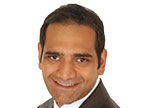Thumb Sucking and Braces
These days, some paediatricians seem to feel that there is nothing wrong with children sucking their thumbs or using a dummy or pacifier. The sucking motion is comforting to them long after they have been weaned and many parents even encourage thumb or dummy sucking to keep the child quiet and help them sleep. The fact is that this habit can be very damaging to the child's teeth in later life if it continues for many years.
Buck Teeth
Sucking on their thumb or a dummy is likely to give children something commonly known as “buck teeth” when the prominent upper front teeth begin to stick out or are out of place. This is because the thumb or pacifier will actually move the teeth when the child is growing and bone tissue is still soft and pliable. There are other symptoms of thumb sucking which can be seen in young people's teeth; teeth on the bottom jaw can begin to tilt in, problems can be caused with the way that the upper and lower jaws come together and the roof of the child's mouth can even become narrow because of the constant pressure from sucking on a thumb or a dummy.
All of these can lead to lifelong problems if they are not corrected with braces or aligners and it is much easier if parents can try and stop their children from sucking their thumbs at an early age. This, of course, does not guarantee that your child will not need braces late in life, but it will lessen the chances of those complaints mentioned above.
Break the Habit
There are various ways to try and discourage your child from sucking their thumb. Use treats and prizes when your child manages to go for a certain period of time without doing it or apply a bitter tasting liquid to the thumb or thumbs in question. If your child is small enough, you can use gloves – but if the child is older they will probably just remove it themselves! If none of these ideas work, you can buy a thumb guard from pharmacists, which makes it impossible, or at least difficult, for the child to suck their thumb. Finally, if you are concerned about any oral habits your child has picked up or are worried about the way their teeth are developing, you should speak to the dentist at one of their regular appointments.
 Anoop Maini
Anoop Maini Tif Qureshi
Tif Qureshi Adam Thorne
Adam Thorne Raha Sepehrara
Raha Sepehrara